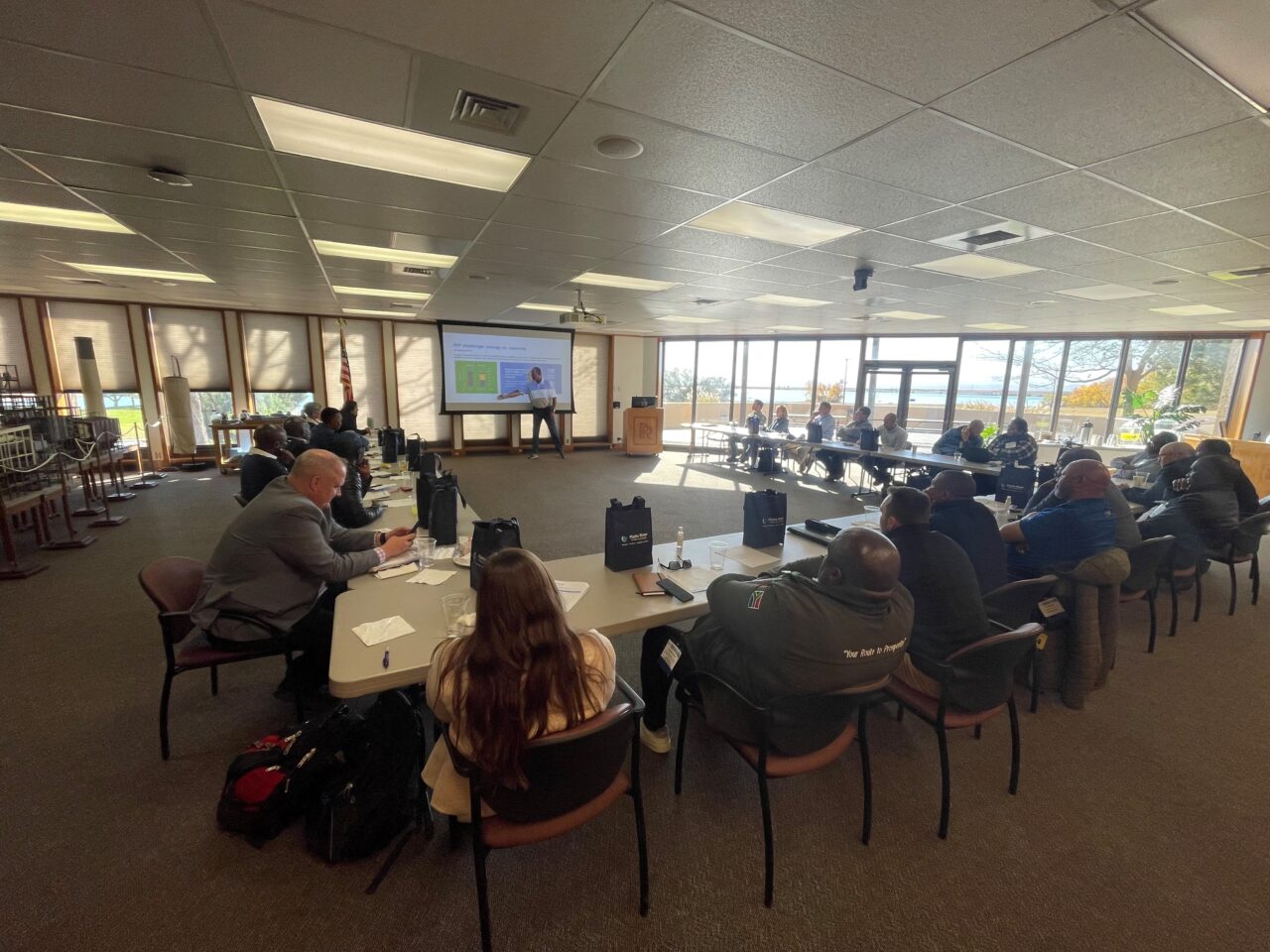Delegates learned about the wholesale power provider’s governance and decarbonization plan
Platte River Power Authority (Platte River) recently hosted 13 delegates from the South Africa Municipal Energy Reverse Trade Mission at its Rawhide Energy Station in Wellington. The delegation is interested in Platte River’s structure as a not-for-profit, community-owned public power utility and in their pursuit of a noncarbon energy future.
“As a leader in the energy industry, we are honored to host this delegation and share Platte River’s story,” says Jason Frisbie, general manager and CEO of Platte River. “Our work toward achieving the board-adopted Resource Diversification Policy will help create a blueprint for other utilities seeking to decarbonize their energy portfolios.”
The U.S. Trade and Development Agency (USTDA) sponsored the South Africa Municipal Energy Reverse Trade Mission. The mission’s goal was to introduce delegates to the contributions of U.S. companies and leaders in the municipal energy sector, renewable energy integration and public sector support. Platte River was identified as an industry leader in public power.
“USTDA promotes U.S. exports to support energy infrastructure in emerging economies, and one way we do that is by building connections with world-class experts like those at Platte River Power Authority,” says Tom Hardy, USTDA’s Director of Policy and Program Management. “Their insights and time spent with the delegation will advance our effort to deploy U.S. transmission and decarbonization innovations to advance our South African partners’ goals.”
Currently, South Africa’s electrical power production structure is vertically integrated with most of the power generated and distributed by the national utility. The country experiences fuel shortages, transportation issues and regular power outages. The reverse trade mission educated delegates about municipal electricity, renewable energy, sector prioritization and overarching policy frameworks within the U.S.
“This is a unique opportunity for Platte River to share our story because many of the decisions, plans, research and coordination efforts being addressed by the delegation are what Platte River’s founders faced over 50 years ago,” Frisbie says.
In addition to Platte River, the delegation visited with U.S. businesses, universities, the National Renewable Energy Laboratory and the Western Area Power Administration, among other organizations.

